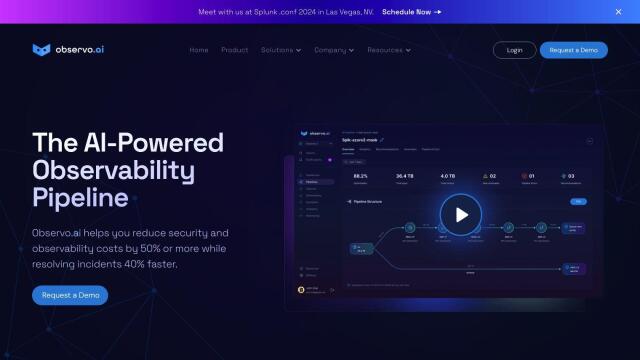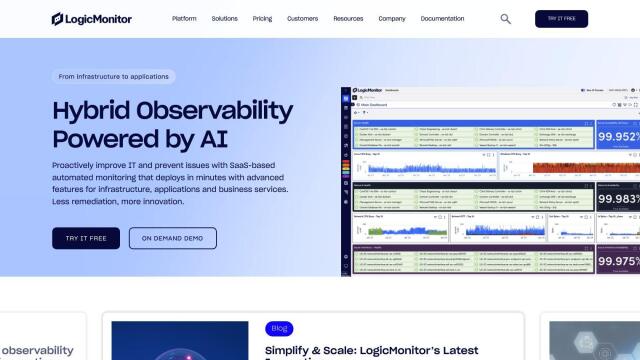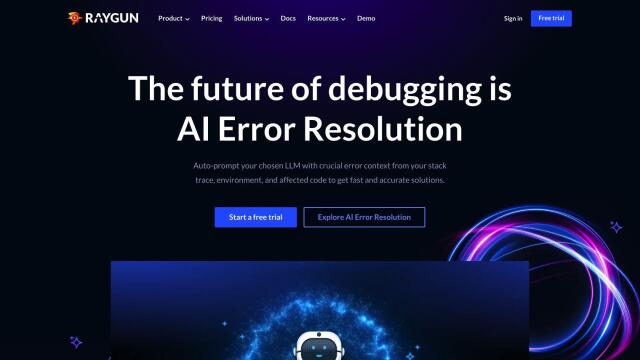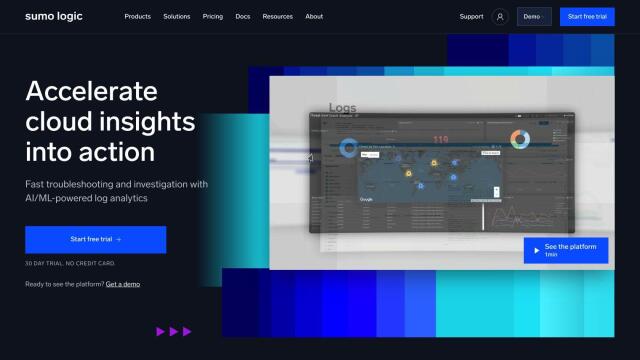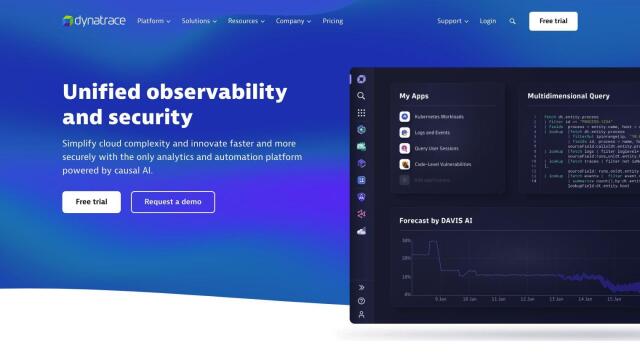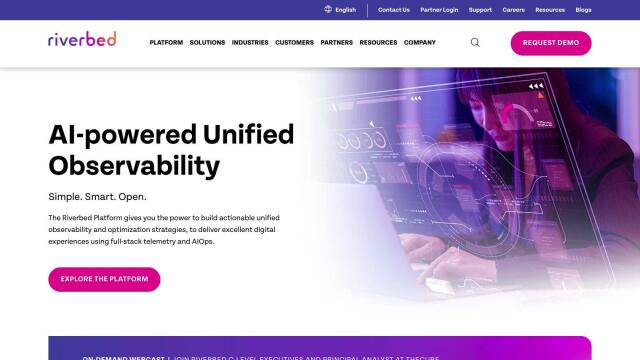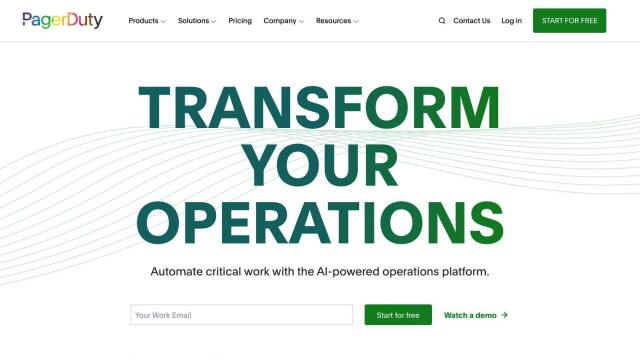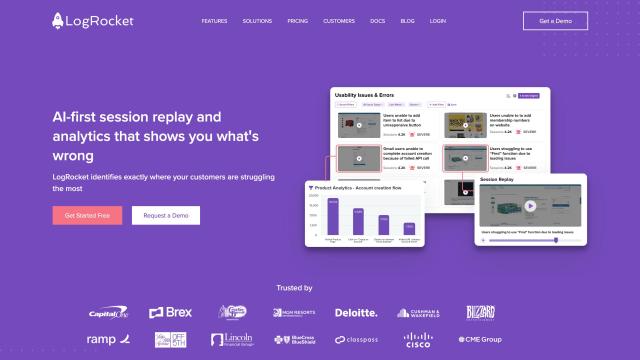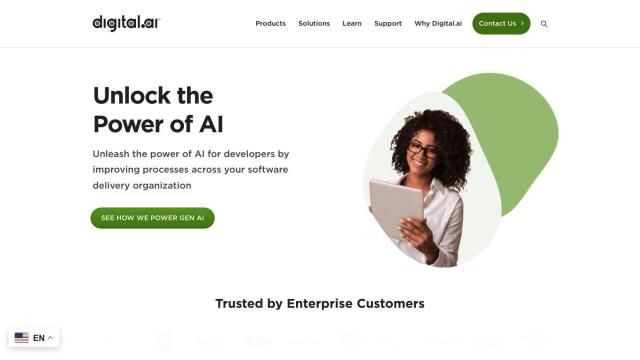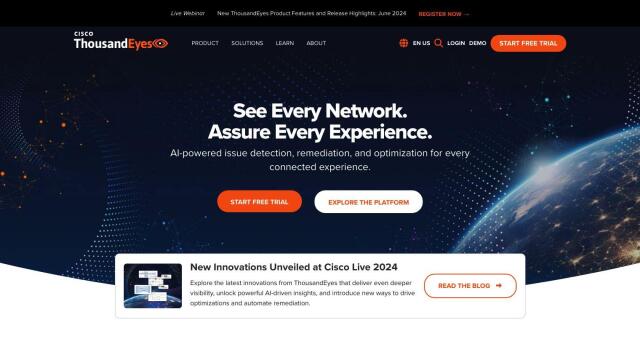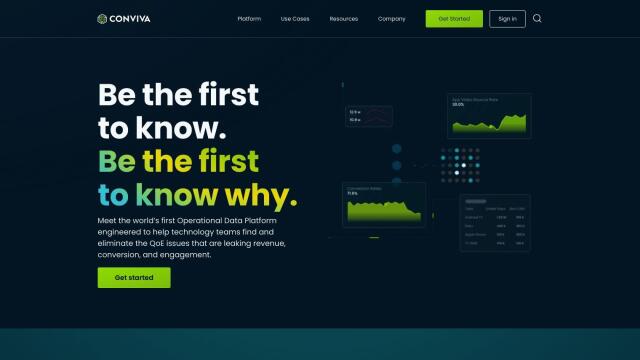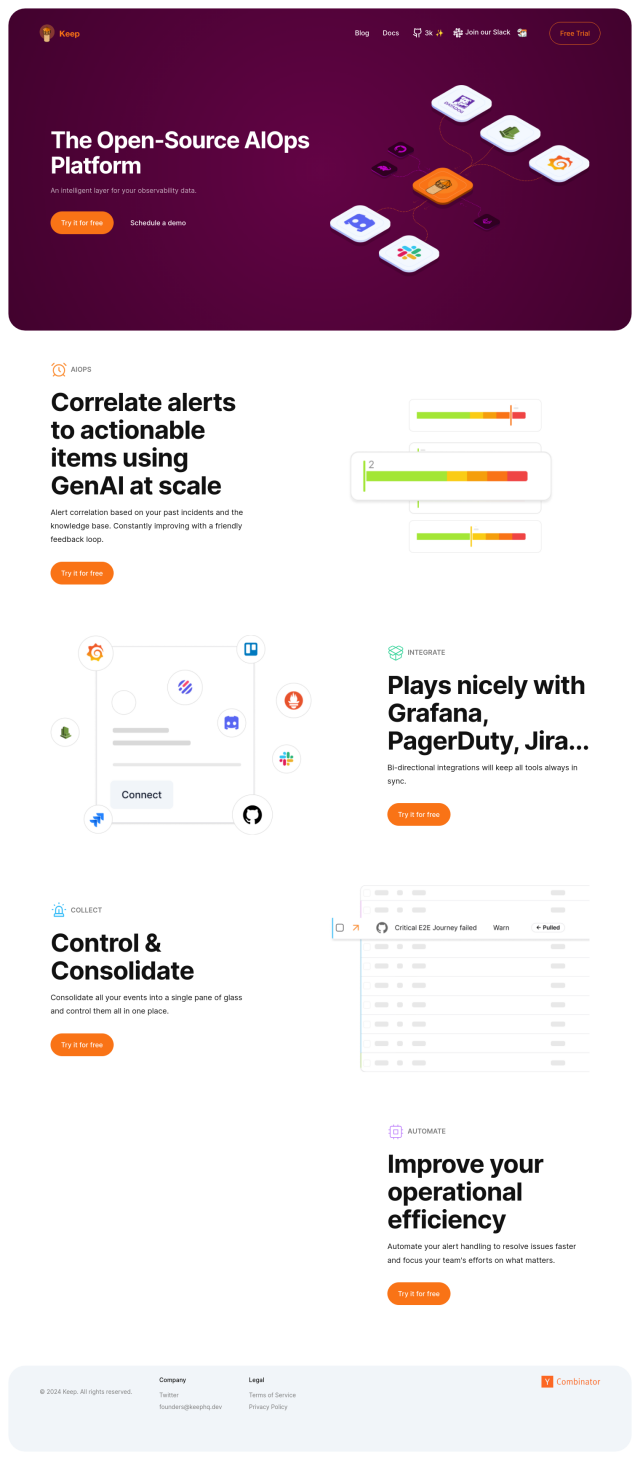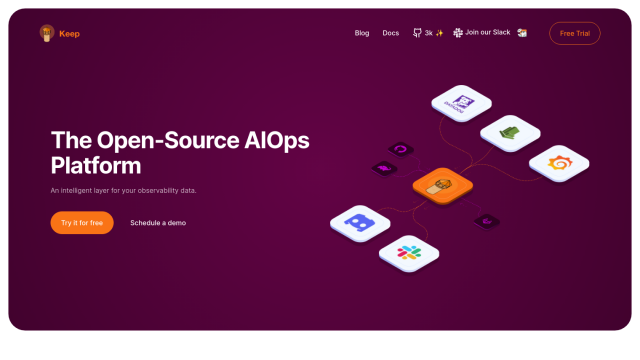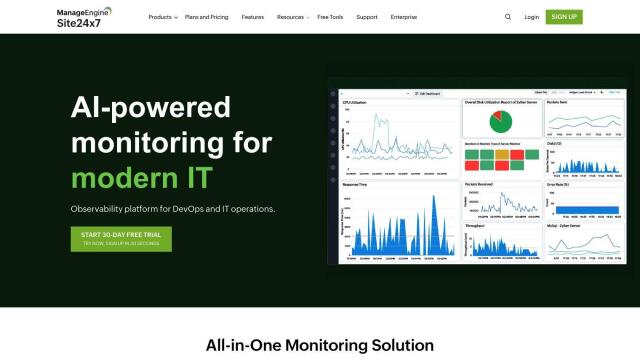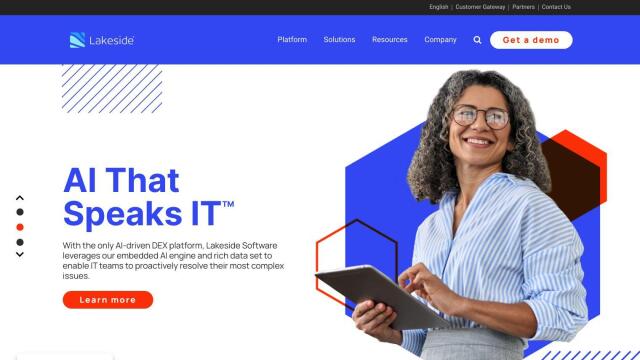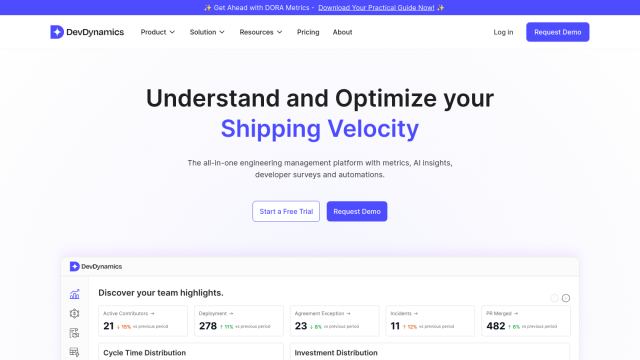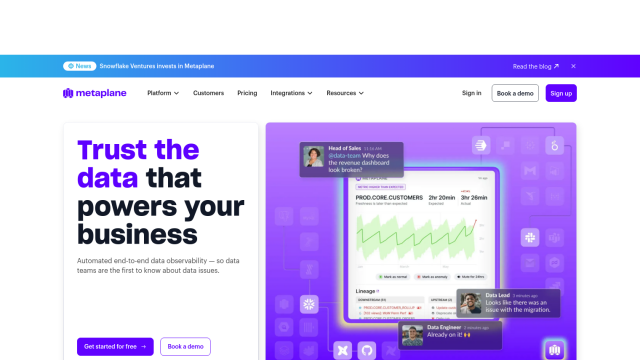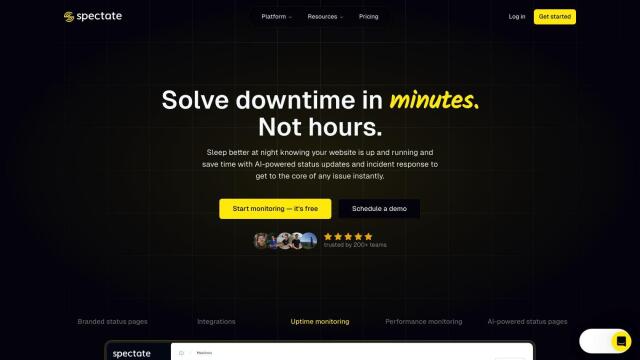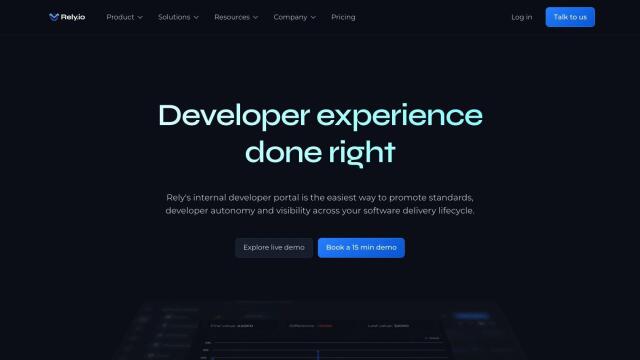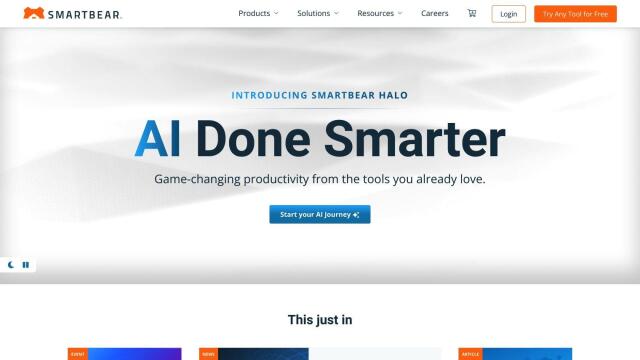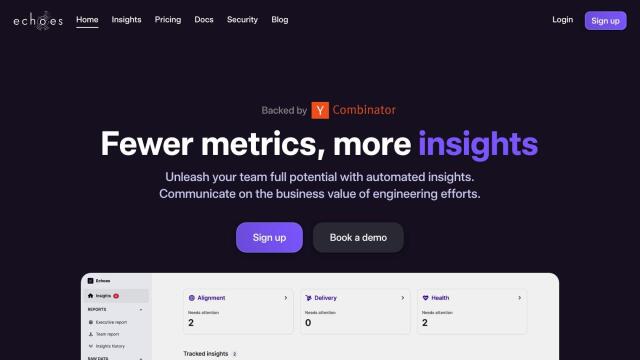Question: Can you recommend a tool that helps DevOps teams identify and troubleshoot issues quickly and efficiently?

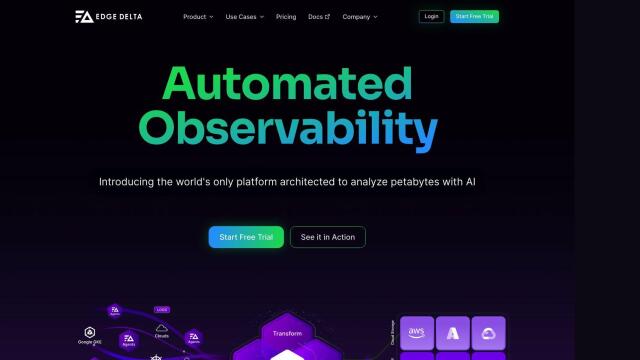
Edge Delta
For DevOps teams trying to quickly zero in on problems and figure out what's wrong, Edge Delta is a good automated observability choice. It provides AI-powered real-time insights, automated anomaly detection and tools to dig into log data to try to find the source of a problem. Its distributed architecture and high-performance log query technology means it can scale well and respond fast to problems, and it's a good choice for teams managing Kubernetes metrics and general service monitoring.

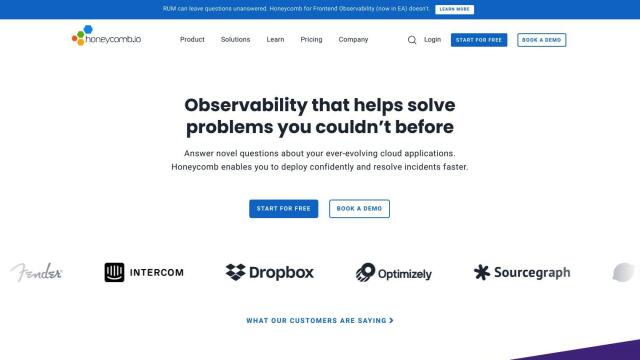
Honeycomb
Another powerful option is Honeycomb, which is good at getting teams to the root cause of problems in distributed services fast. It combines logs and metrics into a single workflow, has smart data sampling technology and integrates with Slack for real-time triage. Honeycomb's database architecture is designed to respond to queries quickly, and its AI-Powered Query Assistant can help you construct and run queries in plain English, making it a good choice for teams that need to dig deep into their data and get actionable information.

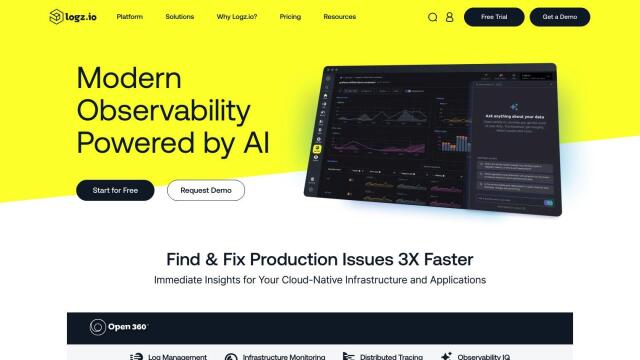
Logz.io
Logz.io is another observability platform worth considering, combining open-source tools like OpenSearch and Prometheus to provide logs, metrics and trace data for monitoring. With features like AI-powered anomaly detection and automated alert recommendations, Logz.io can speed up troubleshooting and lower mean time to resolution. It can integrate with more than 300 cloud platforms and applications, so it's a good choice for organizations of all sizes and complexity.
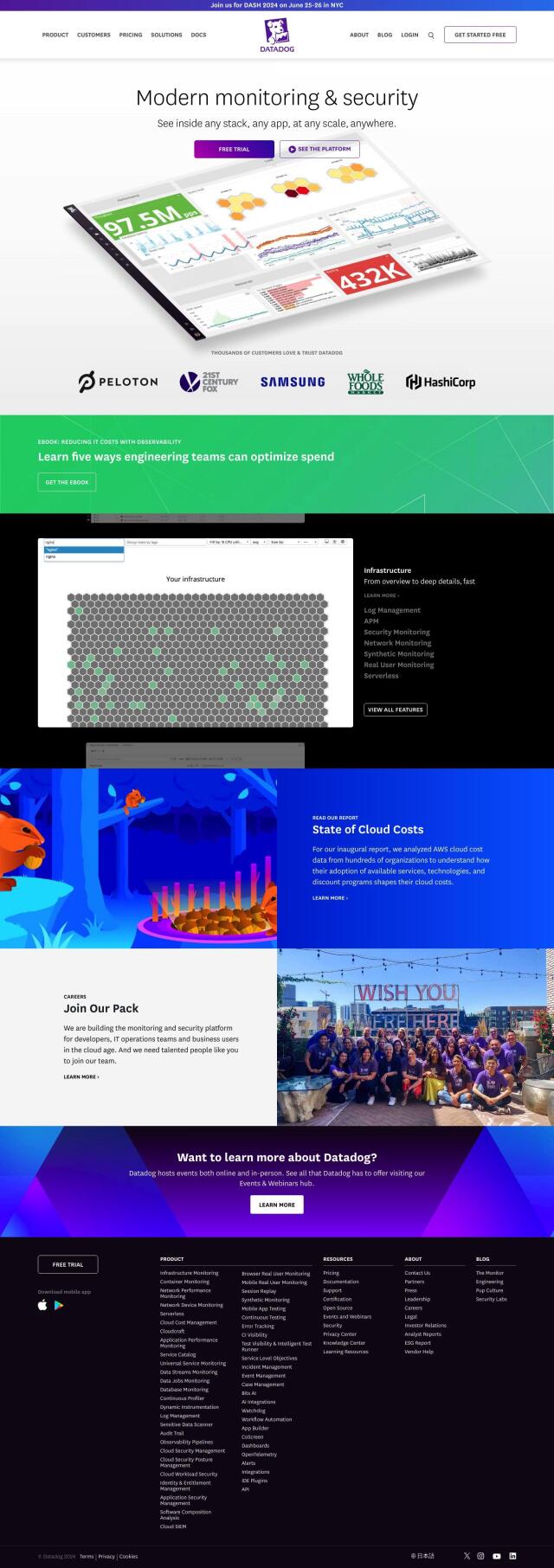
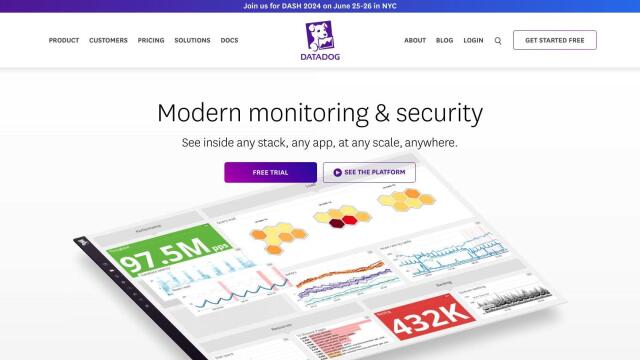
Datadog
For a monitoring and security package, Datadog offers real-time insights into performance, security and user experience across all stacks and infrastructure. With tools like infrastructure monitoring, APM and synthetic monitoring, Datadog offers a wide range of tools to help you find and optimize system performance. Its scalability and wide range of integrations make it a good choice for teams that want to improve overall system reliability.

